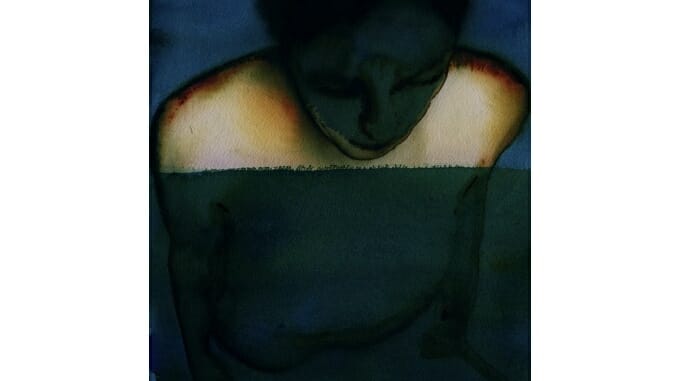Just Mustard Break Noise-Rock Ground on Heart Under
The Irish quintet’s second album, a tornado of distorted dissonance, places them among the vanguard of the British Isles’ ever-crowded post-punk scene

Irish quintet Just Mustard’s debut album, 2018’s Wednesday, often got labeled as shoegaze, but the band’s jarring, hollowed-out production suggested they had harsher, noisier tricks up their sleeve. For every pairing of distortion-infused guitars and breathy vocals—a mix strong enough to earn the band opening slots with The Cure—there was something more viscerally horrendous around the corner. Wednesday opened with what sounded like an entire factory’s gears grinding as if about to explode, and that mechanical noise remained at the album’s outskirts, like a rusty train rattling past a small town. Atop all this commotion, frontperson Katie Ball explored dark images too vague to read as autobiography, yet too twisted to pass as autofiction.
On Heart Under, Just Mustard’s sophomore album, the noise at Wednesday’s periphery becomes the center of attention, and Ball reaches further into her whispery high register as she gestures at nightmares and horrors without clearly painting them. She doesn’t need to be direct in her lyrics—her haunting sneer carries enough tension to mount a curtain rod, and her band’s guitars now sound less like stringed instruments than crazed wild animals crying for help and electric grids sputtering out violently. To call this sound “shoegaze” would grossly understate the innovation, intensity and sheer brutality of the music. Heart Under is simultaneously ghostly and glorious, a wretched yet emancipatory tornado of distorted dissonance that places the band among the vanguard of the British Isles’ ever-crowded post-punk scene.
Heart Under isn’t entirely without precedent; you can find threads of how guitarists David Noonan and Mete Kalyoncuoglu and bassist Robert Hodgers Clarke reimagine and expand their instruments’ timbres and roles in the music of fellow Irish noise-rock greats Gilla Band. The two bands share an affinity for paranoid sounds, though where Gilla Band frontperson Dara Kiely’s battles with psychotic depression are clear in his lyrics, Ball conveys anxiety more through her delivery—her lyrical style shares an abstractness with Heart Under’s unsettling album cover. And where Kiely and co. have often used their destruction and rebuilding of guitar music to infuse punk with suffocating claustrophobia, Just Mustard are more interested in slower-paced, bruised but triumphant sound design. Instead of filling every corner with ear-splitting volume, the band tiptoe between worrisome calm and trenchant barrages, and Heart Under’s transitions from the former to the latter are consistently invigorating and cathartic, regardless of whether you see them coming.
-

-

-

-

-

-

-

-

-

-

-

-

-

-

-

-

-

-

-

-

-

-

-

-

-

-

-

-

-

-

-

-

-

-

-

-

-

-

-

-








































